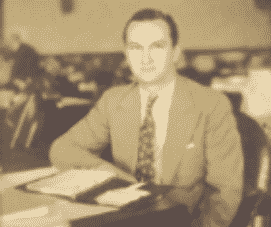WILLS AND TRUSTS LAWYERS STUART, MARTIN COUNTY

Part of the estate planning process involves the creation of wills and trusts. A will or testament is a legal document that declares who receives the estate in the event of death. The property will transfer from the deceased to another party who is named in the will. A trust allows a trustee to hold or distribute assets for the benefit of beneficiaries. Trusts can be helpful in avoiding probate and in some cases will reduce the estate tax which would otherwise be paid.
Have Questions About Wills or Trusts?
One of the most common trusts used today is a revocable trust. Also called a living trust, this type of trust arrangement allows the creator of the trust to cancel the trust or change its terms as long as they are living. If you are starting the estate planning process or need legal help to contest an aspect of a will or trust then contact our firm. A will or trust may be the best option for distributing your estate at death, but it is important to seek professional legal guidance on what approach may be best for you.
How you decide to plan your estate is one of the most important decisions you will ever make. By doing so properly, it will guarantee that your beneficiaries will receive everything according to your wishes. Often, issues arise that are cause for concern among beneficiaries and grantors alike. In the event that you need help planning a will or trust, or contesting one that is already in place, our legal team is available to help.
Contact a
Stuart, Martin County estate planning lawyer from Crary Buchanan for more information on how we can help you. Call today!
Contact a Skilled Attorney
Contact Us
Trust Litigation Attorneys Stuart, Martin County
About Trust Hearings
In many instances, an individual will enter into a trust agreement as part of their estate plan. The person setting up the trust agreement is called the “settlor” or sometimes a “grantor.” Setting up a trust may be desirable for a number of reasons. For one, the settlor may want to lower the liability for their estate tax or they may want to avoid a court-supervised probate proceeding. Some trusts offer unique protections for property upon the death of the settlor. Those who wish to set up a trust must decide between the different types of trust, depending upon their specific needs.
Some different types of trusts are revocable or “living” trusts, irrevocable trusts, and land trusts, just to name a few. Those who are entering into a trust agreement will then decide what property they want to be placed into that trust. The property will then hold under the terms of the trust for the beneficiaries identified in the trust agreement. To effectively navigate the many uses and benefits of trusts you need the help of a skilled attorney.
Probate Attorneys Stuart, Martin County
What is probate?
Probate is a legal term for the court-supervised process that takes place after someone’s death. This legal process entails a court deciding whether the deceased’s will is valid as well as determining how the remaining properties and debts are to be allocated. Once the will is admitted to probate, the court will appoint a “personal representative” (who is referred to in some other states as an “executor”) to oversee the administration of the estate.
The personal representative has the duty of notifying all beneficiaries and creditors of the estate proceeding. The personal representative is also required to pay or otherwise handle all debts of the estate, and to pay all applicable taxes. Once all obligations of the estate have been satisfied, the remaining assets are distributed to the beneficiaries. Our trusted attorneys can help you successfully navigate this often complex and confusing area of the law.
Named As An Executor Or Trustee
What are my responsibilities as an executor or trustee?
Being named as an executor to a will or the trustee of a loved one’s trust is a great honor. It means this person is confident that you will look after the things and people they dearly treasure. It may seem like an overwhelming responsibility to accept, but an experienced lawyer from our firm can guide you through the process and answer any questions you have. It is important to know that there are differences between an executor and a trustee, and their responsibilities vary.
- Duties of the Executor of a Will
As the executor, you will be responsible for settling the deceased’s probate estate, which is the property that is in their individual name. It will be your job to collect all property, and then use the assets to pay final expenses, debts, and taxes. Lastly, you will distribute the remaining property as specified in the deceased’s will. If a will was not left, you will distribute property to heirs as determined by the laws of Florida. Your duties as executor will end once the property is distributed, which is normally a year to eighteen months after the passing of the loved one. - Duties of the Trustee
As the trustee, you will be responsible for property that is placed in the deceased’s trust. You will manage this property for the benefit of the trust’s beneficiaries, which could last for many years, depending on the terms of the trust. When the trust terminates according to its terms and the property is distributed to the remainder beneficiaries, your duties as trustee will end.
Contact an experienced in Stuart, Martin County!
At Crary Buchanan, we understand that this is an emotional time, and we can support you during your duties. With almost 100 years of experience, we are adept in many areas of estate planning, and we can guide you throughout the entire process. You will need to carry out a number of legal responsibilities as an executor or trustee, and it is important to have the representation of a knowledgeable law firm to ensure that everything is done in accordance with Florida’s laws.
If you have been named the executor or trustee of an estate and would like to learn more about how our firm can help, call 772-218-2600 to discuss your case.
Contested Trusts Attorneys Stuart, Martin County
Stuart, Martin County Lawyer for Contested Trusts
It is often possible for a beneficiary or someone who was not included in the legal document to file suit to contest the trust of a loved one, also known as a testator. Though trusts are created to distribute a person’s assets after they have passed away, they can be challenged if relatives or beneficiaries question the validity of the document.
If you have suspicions that a loved one’s trust was wrongfully written, it is important to speak with an attorney as soon as possible to determine if the trust is invalid on the grounds of:
- Improper Execution: The creation of an express trust must follow the guidelines set forth by Florida law. In the event that the trust was improperly drafted or improperly signed by the testator or the two witnesses, the court could rule the document to be invalid.
- Lack of Capacity: Florida requires that the testator have the mental capacity and bearings to be aware of the assets they are distributing and the people to whom these assets will be given. If the testator lacked the necessary capacity due to age, illness, medicinal effects, or another verifiable factor, the family or beneficiary can contest the document’s validity.
- Undue Influence: The testator should have written their trust freely and according to their own desires. The trust can be challenged if it is believed that the testator was coerced or pressured by a relative, friend, or advisor to distribute their assets in a specific manner.
Step-by-Step Assistance is Available
Trust must be contested within a short matter of time after the passing of the testator, and you should speak with an experienced estate planning law firm as soon as you can to discuss your options. Our team is committed to helping family members uphold and honor the legacy of their loved ones, and we work with clients to create comprehensive cases to contest unlawful trusts.
We thoroughly examine different types of evidence, legal documents, and medical records to determine the true wishes of the testator, and use this information to advocate for our clients before the probate courts. Our firm has served the residents of Stuart since 1927, and we can provide you with the voice you need to contest the trust in court. We are powerful advocates for our clients and use our extensive experience and understanding of the law to give their cases the best opportunity for success. If you need to contest the trust of a loved one, it depends on the sound legal counsel of Crary Buchanan.
To contest the trust of a loved one, it is imperative to contact Stuart wills and trusts attorneys from the firm immediately to prepare your case.

Community

Experience


